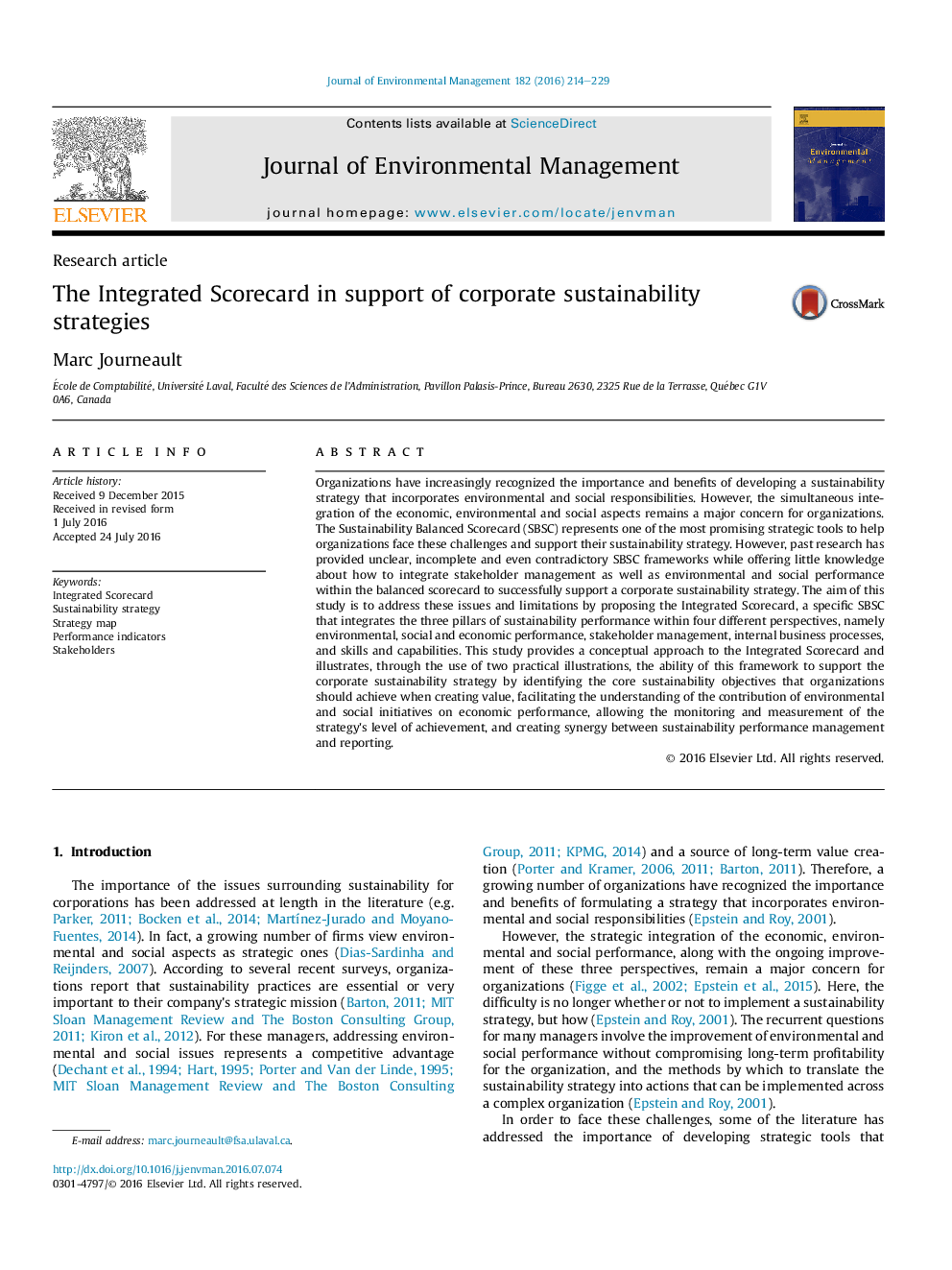| Article ID | Journal | Published Year | Pages | File Type |
|---|---|---|---|---|
| 7478975 | Journal of Environmental Management | 2016 | 16 Pages |
Abstract
Organizations have increasingly recognized the importance and benefits of developing a sustainability strategy that incorporates environmental and social responsibilities. However, the simultaneous integration of the economic, environmental and social aspects remains a major concern for organizations. The Sustainability Balanced Scorecard (SBSC) represents one of the most promising strategic tools to help organizations face these challenges and support their sustainability strategy. However, past research has provided unclear, incomplete and even contradictory SBSC frameworks while offering little knowledge about how to integrate stakeholder management as well as environmental and social performance within the balanced scorecard to successfully support a corporate sustainability strategy. The aim of this study is to address these issues and limitations by proposing the Integrated Scorecard, a specific SBSC that integrates the three pillars of sustainability performance within four different perspectives, namely environmental, social and economic performance, stakeholder management, internal business processes, and skills and capabilities. This study provides a conceptual approach to the Integrated Scorecard and illustrates, through the use of two practical illustrations, the ability of this framework to support the corporate sustainability strategy by identifying the core sustainability objectives that organizations should achieve when creating value, facilitating the understanding of the contribution of environmental and social initiatives on economic performance, allowing the monitoring and measurement of the strategy's level of achievement, and creating synergy between sustainability performance management and reporting.
Related Topics
Physical Sciences and Engineering
Energy
Renewable Energy, Sustainability and the Environment
Authors
Marc Journeault,
